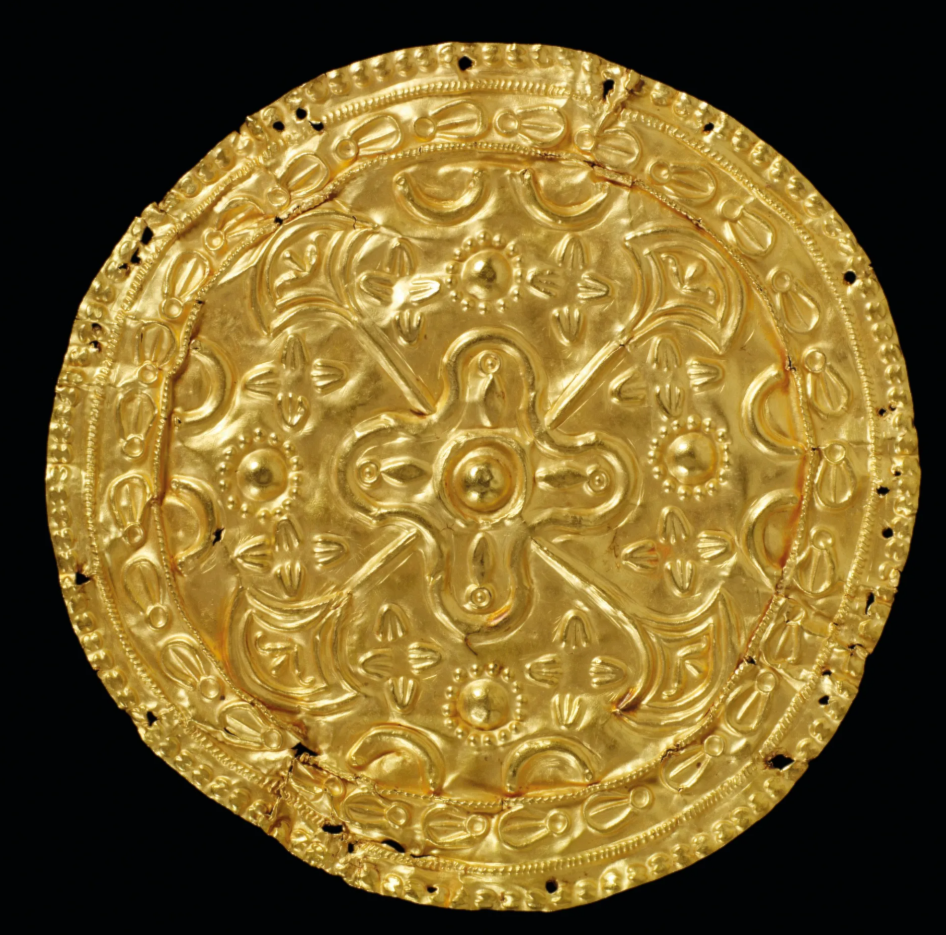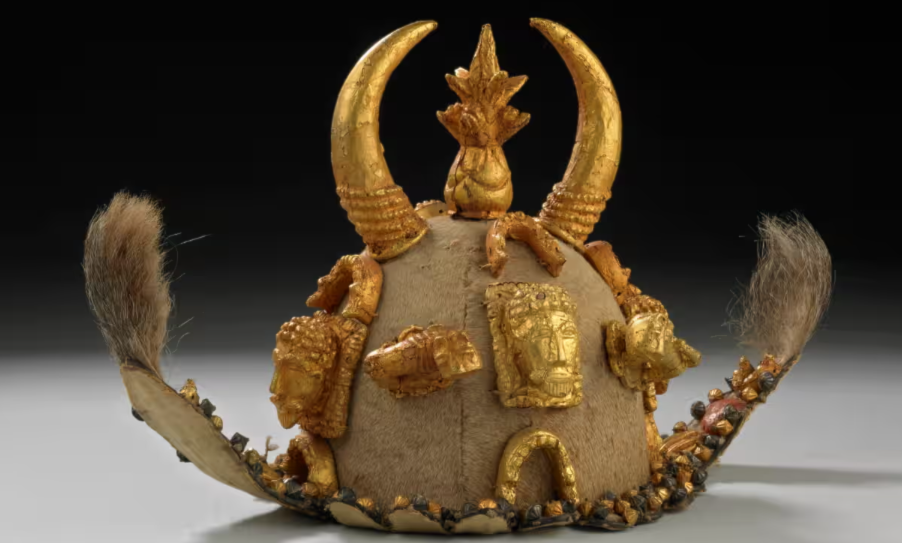British Museum, V&A to lend looted gold art to Ghana
The British army seized the antiques from Ghana during the colonial era, and museums in Europe purchased them at auctions.
-

Gold disc, pre-1874, Victoria & Albert Museum (Victoria &Albert Museum London)
The British Museum and the Victoria and Albert Museum (V&A) will donate a highly valued collection of plundered gold and silver regalia linked with the Asante royal court to Ghana under a three-year loan contract, the museums revealed Thursday.
The British army had seized the antiques from Ghana during the colonial era, and museums in Europe purchased them at auctions. They comprise 17 artifacts from the V&A collection and 15 from the British Museum, including a gold peace pipe, a harp-shaped gold decoration, and cast-gold soul-washer badges.
Read more: How Ghana's heritage museum will reclaim Africa's history
According to a joint statement by the museums, the artifacts are "of cultural, historical and spiritual significance to the Asante people" and are linked to "British colonial history in West Africa, with many of them looted from Kumasi during the Anglo-Asante wars of the 19th century."
The Manhyia Palace Museum in Kumasi, Ghana, will house the items in an exhibition commemorating the 2024 silver jubilee of Otumfuo Osei Tutu II, the direct descendant of Asante rulers, as well as the 150th anniversary of the Third Anglo-Asante War and the 100th anniversary of Asante ruler Prempeh I's return from exile in Seychelles.
-

An Asante head-dress (Trustees of the British Museum)
British Museum's fiasco not isolated
The British Museum's mishandling of looted artifacts is not new, as it is involved in other such incidents.
Zahi Hawass, a renowned expert in Egyptian archaeology, strongly condemned the British Museum's handling of Egyptian artifacts last year, calling it a crime against the world society.
He described the theft of these treasures as a great travesty and asked for a widespread demand that the British Museum no longer be regarded as an acceptable location for the presentation of Egyptian artifacts.
The existence of the Rosetta Stone in the British Museum, according to Hawass, is a terrible error, as this stone is an iconic emblem of Egyptian ancestry.
He firmly believes that the Rosetta Stone's rightful place is within the grand Egyptian Museum in Egypt itself.
Wales is following in the footsteps of Greece, Nigeria, and China, demanding that artifacts in the British Museum be returned.
In September, a Chinese newspaper demanded Britain return "all Chinese cultural relics acquired through improper channels to China free of charge."
The British Museum Act of 1963 officially forbids the complete repatriation of the museum's treasures; however, it is unclear how this relates to Welsh antiquities.
In the past, Liz Truss expressed that she did not support the restitution of the Parthenon sculptures from the British Museum back to their origin in Greece.

 3 Min Read
3 Min Read








